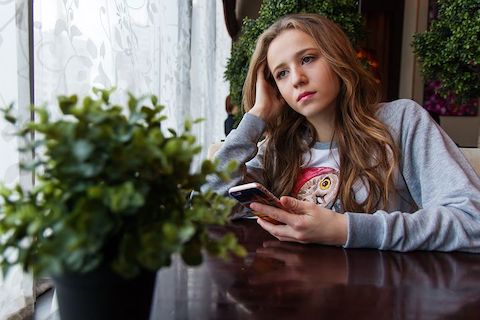Resistance to Being a Loving Adult
By Dr. Margaret PaulOctober 07, 2019
Have you experienced feeling resistance to being a loving adult and taking responsibility for your feelings?
 When I first started practicing Inner Bonding, I was in much resistance to taking responsibility for myself. I had spent too many years believing that getting love - and trying to have control over getting love - was the road to happiness and self-esteem, and I was very reluctant to give up this project. I felt resentful that after all this time and effort, I had to do this for myself. It didn't seem fair. After all, I had spent most of my life taking responsibility for others, so why shouldn't they do this for me?
When I first started practicing Inner Bonding, I was in much resistance to taking responsibility for myself. I had spent too many years believing that getting love - and trying to have control over getting love - was the road to happiness and self-esteem, and I was very reluctant to give up this project. I felt resentful that after all this time and effort, I had to do this for myself. It didn't seem fair. After all, I had spent most of my life taking responsibility for others, so why shouldn't they do this for me?
While sitting with Carol at a 5-Day Inner Bonding Intensive, I saw myself in her. Carol was stuck in resistance. She knew in her head that to feel happy and full inside, she needed to show up as a loving adult and take responsibility for her painful feelings, but she didn't want to. She thought that if she opened her heart to herself, as she was being invited to do, she would feel controlled by me - even though she knew that opening her heart was in her highest good. She was determined to make me responsible for how she felt - to get me to give her the love that she didn’t want to have to give to herself, and that she believed she couldn’t do.
It’s Not Fair!
I sat there in deep compassion for her, knowing exactly the struggle that was going on inside her. She said the same words I had said years earlier: "I've taken care of everyone my whole life. I shouldn't have to take care of myself on top of everything I've done for everyone else. It's not fair." Her suffering was heartbreaking, and if I could have done it for her, I would have, but I knew from years of experience of trying to be the loving adult for another's inner child, that all it would do is keep her stuck and dependent. Sure, I could attach her to me by taking responsibility for her feelings, as many codependent therapists do, but I would be enabling her dependency, rather than supporting her in being all she can be.
So I sat with her in her struggle, and even encouraged her to continue to resist - consciously. All her life she had unconsciously resisted taking responsibility for herself, and now it was time to consciously choose to resist, rather than doing it automatically.
By consciously choosing to resist being a loving adult, she could become more aware of her choices.
People hate it when I recommend that they consciously resist, because it unmasks the wounded self, and the wounded self in all of us hates to be unmasked. It wants to believe that it can continue to protect and control without anyone knowing. So, when I recommend that the wounded self continue to do what it's been doing, and do it consciously, the wounded self wants to resist this as well. Since I was telling Carol's wounded self to resist, she wanted to resist resisting, which put her into a bind. If she did what I asked her to do, then she would feel controlled by me, but if she resisted resisting, then she would have to show up as a loving adult!
To Carol's credit, she ended the session struggling with this quandary, only to come back later in the day in a totally different place. She had let go of trying to control and not be controlled and had opened her heart to her little girl. The relief she felt was palpable. We all rejoiced in her radiant smile as she shared feeling full of love inside.
Join Dr. Margaret Paul for her 30-Day at-home Course: "Love Yourself: An Inner Bonding Experience to Heal Anxiety, Depression, Shame, Addictions and Relationships."
Join IBVillage to connect with others and receive compassionate help and support for learning to love yourself.
 Send this article to a friend
Send this article to a friend  Print this article
Print this article  Bookmarked 1 time(s)
Bookmarked 1 time(s)
Comments
| Author | Comment | Date |
|---|---|---|
| Join the Inner Bonding Community to add your comment to articles and see the comments of others... | ||

Daily Inspiration
Today, focus on telling your truth with the important people in your life - the truth about you and who you are, not about them and who they are. Notice when you want to change the truth or to withhold something. Notice if there is fear of being completely honest with your truth of who you are. What is your fear?
By Dr. Margaret Paul

 Share with Del.icio.us
Share with Del.icio.us Share with Digg
Share with Digg






